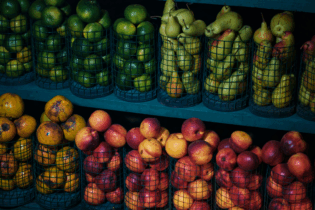Last month, Rwanda marked three years since it was welcomed into the East African Community (EAC) Customs Union, in 2009.
While a lot has happened in terms of benefits from the region, its full potential in terms of trade with partners is yet to be fully exploited.
According to the 2012 state of the EAC report, trade among the partners has doubled from US$2billion in 2005 to US$4.1billion in 2010 but Kenya dominates it with 41%. Rwanda does more trade with DR Congo which is not a member of EAC than it does with any other EAC partner state.
As of 2010, more than 50% of Rwanda’s non-commodity exports were sold to DRC with only 35% consumed by EAC countries.
Moreover, of the 35% trade with EAC partners, Rwanda did more trade with Burundi at 23% followed by Kenya at 8%, Uganda at 3% and Tanzania at 1%.
Only 11.7% of Rwanda’s exports are non-commodity export and these are traded with countries outside the EAC.
Tea and Coffee which accounted for 49% of all exports in 2010 were sold to Europe, USA, Canada and Asia. The same goes for minerals that accounted for 39.2%.
It’s only other products (general) amounting to 11.7% that ended up to the region (90%) but again with Europe and Asia jointly claiming the 10% balance.
It’s clear how little trade Rwanda is doing with her EAC partners, more compared to Europe and other countries.
These statistics came in only a year after Rwanda joined the community as the second smallest population of 10.6 million, second smallest economy with the GDP of $5.6 billion but the second largest in terms of GDP per capita of $530.
In 2012, Rwanda is determined to stamp its mark in the community of 133 million people. Already, it’s the highest-ranked economy for doing business and the 2nd most improved economy 2005-2010, all statistics by the World Bank’s Doing Business Report, 2010.
The CEO of Rwanda’s Private Sector Federarion( PSF), the umbreall organisation of the private operators in the country, Mr. Hannington Namara says: “Rwanda has a lot to benefit from the EAC but on top of preparing our people to claim those benefits, it’s also dependant on how much partners are willing to open up to enable mutual benefits.”
In July, Rwandan CEOs met the EAC secretary General Dr. Richard Sezibera on a breakfast meeting in Kigali. Rwanda’s top business managers pointed out that though their companies are eager to exploit benefits of the common market, there are still a lot of bottlenecks to be addressed to increase trade and investment among partner states.
Rwanda is a land locked country whose connection with the EAC partner states is by road. And indeed, about 95% of the region’s goods move by road.
“This was [is] a key constraint to economic growth in the region and hence the need to urgently focus on investments in the rail network by upgrading, extending and powering it,” reads a statement in the 2012 state of EAC report.
The poor state of the road network, nagging non tariff barriers especially roadblocks and slow customs process of clearing goods across the borders are still hampering cross-border trade among the EAC partner states. All these make the cost of doing business even higher, undermining the whole idea of smooth trade among partners.
Besides the problems on roads, free movement of labor and capital within the community is still hampered by unfriendly practices that limit the level business.
During the breakfast meeting, RwandAir CEO John Mirenge claimed his Airline is denied freedoms that are nonetheless granted to foreign Airlines in other EACG partner states hence increasing the cost of doing business.
Bank of Kigali’s Chief Operating Officer Lawson Naibo said their attempts to expand into the region have been met with unfriendly policies that place them as foreign rather than a regional bank.
Transporters claimed that while Rwanda charges US$152 for all trucks entering the country, they are charged $500 when entering Tanzania.
“There are too many roadblocks and these have become money minting ‘ATMs’ in form of bribes demanded by those officials,” said Ephraim Turahirwa, the general manager of Rwanda Mountain Tea.
There are times when the level of commitment of partner states has been questioned after small things like non tariff barriers have irked many traders.
Turahirwa revealed that they refer to the road blocks as ‘ATM machines’ for officers who man them because it has emerged most of the money is not receipted or if a receipt is issued, then it’s phony.
“Because when you pay (bribe) you at least save time,” said a regular transporter on the Rwanda-Tanzania rout.
But the Dr. Sezibera is not in support of this approach.
“We should shame business people who give bribes as the only way to kill the habit of soliciting for illegal fees on the roads,” he asserted.
That might not really work as its common knowledge that in such situations, traders go for the easy way out and if it’s parting with a bit of money so be it.
But not everyone is happy with Rwanda either. Despite introducing innovative electronic systems to cut red tape and increase trade facilitation, Ugandan traders recently pointed out some flaws at the Gatuna border. For instance, Joseph Izidoro, a Ugandan trader who transports Agricultural produce to Kigali on a weekly basis said that the efficiency of Rwanda’s on-line clearance methods are often marred by network connection problems compelling traders to wait for hours. “Yet in produce business, prices fluctuate per hour which means any minute wasted at the border might mean heavy losses on our side,” lamented Izidoro. Farouk Zzimbe, another Trader singled out customs staff members are supposed to work 24 hours, but the Rwandan officer in charge of the scanning device takes several hours off for lunch forcing traders to wait for them. In April this year, when the community bid farewell to Beatrice Kiraso, the former deputy secretary general (Political Federation) she advised the partners that, “we have come so far to turn back.” She added that partner states have to let go of some things in the interest of the region. That was on mark because many have feelings some states are just not willing to let go. If true, this will only be in self defeat and a boomerang to efforts already sank in by many experts. PSF chairman Faustin Mbundu put it better when he stated that; “Geography made us neighbors, history made us relatives and economics has made us trading partners, but if we don’t iron out negative practices especially non tariff barriers, we all stand to lose.” How does Rwanda win? That in itself is a wrong question. EAC partner states should not be self centered but rather look at the bigger picture that way; they can win and lose together since the benefits are mutual. In a meeting held last year in Mombasa, partners agreed that the best way to address non tariff barriers for instance was to identify and deal with them bilaterally. Only barriers which affect the region would be dealt with regionally. Ever since that pronouncement, Rwanda has engaged her Ugandan counterparts twice, meeting in Kabaale early this year and hosting Uganda in April both meetings discussed issues that are hindering trade between the two states. One of the significant resolutions was for Uganda to only maintain two checkpoints at the entry and exit to enable faster moving of traders and their goods. That’s a commendable approach and could see trade fortunes increase if implemented. The same would apply with Burundi, Kenya and Tanzania. The other efforts concern establishment a One Stop Border Post (OSBP) at Rusomo border with Tanzania. The project funded by the Japanese International Corporation Agency (JICA) will see about US$60 million used but results are not expected until sometime in 2014. That’s not a bad idea because when it’s finished, the facility will mean traders stop only once for clearance, there will be increased partnership between the two customs authorities as well as information sharing. Concerning free movement of labor, Rwanda will have to pray that her partners open up for Rwandans apart from Uganda. It’s very difficult for a Rwandan to find a job in Kenya or Tanzania as the practice is still very protective of nationals. Rwanda on the other hand is free for all, no work permits, and academic qualifications from the regional are easily accepted. The same case concerns business registration. While Rwanda’s policy on business registration allows foreigners to easily own businesses, in Tanzania, the policy requires an investor to cede over 50% of the shares to a local. This means a Rwandan can’t fully own his business in Tanzania. A good example is provided by Mr. Mbarushimaana who owns a clearing agency dating way back from the early 80s. While he has opened branches in Uganda and Kenya, Tanzania has eluded him thanks to that restriction. Currently, the Community implementing the 4th EAC Development Strategy (2011-2016) themed; “Accelerating and Deepening EAC Regional Integration” by far, the ‘most ambitious’ and sets out the implementation of major regional Master Plans in the key productive sectors with more focus on Agriculture and Food Security, Industry and Manufacturing and Tourism, according to Ambassador Sezibera. The success of this strategy largely depends on the commitment of the partners themselves. With almost 150 million people, the EAC is a potential China as it would have her own market base to consume her goods. The Western market is no longer reliable and this a functioning community will be an insurance against over dependency. But, as the PSF says, its members have to reinvent themselves to be more innovative to improve their competitiveness in the region. Internal mergers, better branding, superior quality, attractive customer care, ICT use in business and others will help Rwanda claim her full potential in the community. Source: allafrica.com




